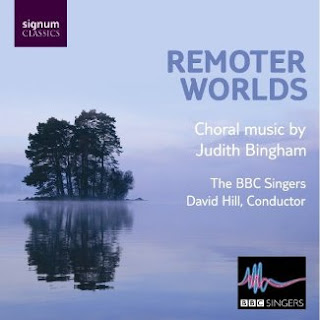Search This Blog
Early music and more by Edward Breen
Where possible, review entries are linked to their original publication.
Posts
Showing posts from January, 2009
Remoter Worlds: Choral Music by Judith Bingham
- Get link
- Other Apps
Album review: I Love All Beauteous Things: Choral and Organ Music by Herbert Howells
- Get link
- Other Apps



